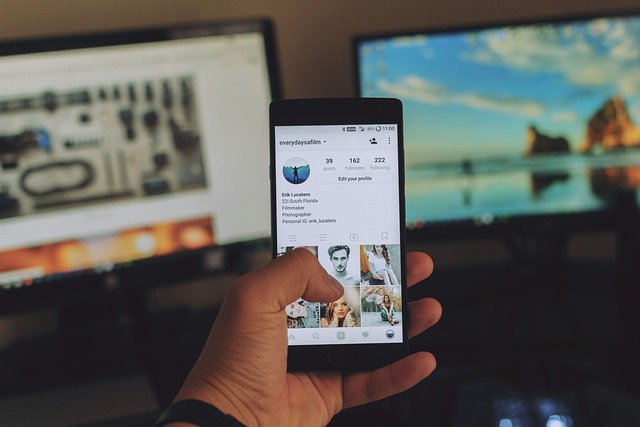There is SEO. And there is social media. But do they… intertwine? How do social media platforms cooperate with search engines? Today, we’ll guide you through the intricate dance between social signals and search engines. Social signals SEO might become your new go-to strategy – read on to find out more.
Key Takeaways
- Social signals SEO improves visibility and engagement on social media platforms.
- Regular, engaging content on social media channels boosts social signals.
- Positive social media engagement can indirectly influence search rankings.
- High-quality content shared on social media attracts more social media users and can lead to increased website traffic.
- Tracking social signals through Google Analytics helps refine SEO efforts.
- User-generated content and interactions provide valuable social proof that can enhance search engine results.
- Social media posts that generate high engagement often reflect high quality content.
- Collaborations with influencers can amplify social signals and SEO benefits.
- Social signals from social media profiles can indirectly act as a ranking factor for major search engines.
- Effective social media marketing requires continuous monitoring and adaptation based on social signals and seo data.
What are Social Signals?
In SEO, social signals refer to the engagement—likes, shares, comments—your content receives on social media and how it influences your SEO performance.
Examples of Social Signals
Likes, Shares, and Comments on Social Media Posts
Likes, shares, and comments are primary indicators of social signals on social media posts.
When users interact with content through these actions, it sends signals to search engines that the content is engaging and valuable.

This interaction can increase the content’s visibility in search results, showing how directly social media engagement impacts SEO. For organizations focused on SEO for higher education, leveraging these social signals can help academic institutions and related platforms gain wider visibility in competitive digital spaces.
User Reviews and Ratings on Social Platforms
User reviews and ratings on platforms like Facebook or GMB (note: see how to schedule posts on Google My Business) are powerful social signals.
High ratings and positive reviews enhance social proof, boosting trust among other users and influencing search engine results positively. Along with that, you can also embed Google reviews on website. A Google review widget helps the users to establish social proof among the target customers.
This type of engagement demonstrates the relevance and quality of a business to other search engines, which can improve local SEO rankings. For example, businesses like real estate agencies selling tiny houses in Montana have seen significant improvements in local search visibility by maintaining positive social signals. Likewise for a company providing self storage in Christchurch and Bromley.
Mentions and Tags on Social Media
When social media users mention or tag a brand in their posts, it acts as a social signal that enhances brand visibility.
These mentions serve as endorsements, increasing a brand’s reach to a larger audience.
Such social signals matter in search engine optimization and to providers of the best SEO services as they can lead to increased organic traffic to the brand’s web page and improve its overall search engine results.
Social Media Shares of Blog Content
Sharing blog content on social media channels is an effective way to generate social signals.
When a blog post receives a high number of shares, it not only increases the content’s reach but also signifies high quality content to search engines.

This can indirectly affect the blog’s ranking in Google search results through increased visibility and traffic.
Visual Content Engagement on Instagram and Pinterest
Engagement on visual content like images and videos shared on platforms like Instagram and Pinterest can significantly boost social signals.
High engagement rates signal to search engines that the content is relevant and appealing to the target audience.
This form of engagement is crucial for industries relying on visual impact, influencing both google rankings and bing search rankings.
Backlinks from Social Media Influencer Collaborations
Collaborations with social media influencers can lead to significant social signals through backlinks to a website.
When influencers share a link to a website’s content, it not only drives their followers to the website but also increases website traffic and social media engagement.
This increased activity sends positive signals to search engines, enhancing the website’s SEO profile through service design strategies that integrate user engagement with digital experiences.
Benefits of Leveraging Social Signals

Increase Brand Awareness
Increasing your visibility on social media platforms boosts your brand’s recognition. More shares and likes mean more people see your content, expanding your reach.
Additionally, a vibrant social media presence elevates your profile across other websites, inviting a larger audience to engage with your brand.
Enhance Search Engine Rankings
Active social media presence can improve your ranking in search results. Regular, engaging posts lead to more shares, which indirectly boost your visibility in search engine rankings.
Leveraging AI SEO services can enhance this effect by analyzing social engagement data, optimizing content for both search engines and social platforms.
This effect demonstrates how social signals impact SEO by signaling to search engines that your content is valuable to social media users.
Drive Website Traffic
Engaging content on social media can lead more users to your website. This increased traffic can positively affect your website’s search engine ranking.
Tracking social signals through embedded analytics tools can help optimize this traffic, turning clicks into engagement on your web pages.
Improve Content Quality
Feedback from social media users helps you refine your content. Higher quality content ranks better and attracts more engagement, creating a virtuous cycle. Consistently high-quality content builds your reputation as a source of valuable information, further enhancing your SEO efforts.
Boost User Engagement
A strong social media presence can foster deeper connections with your audience. Increased user interaction boosts the perceived value of your brand and content. This heightened engagement can translate into improved customer engagement metrics, further boosting social signals SEO.
Strengthen Digital Marketing Strategy
Integrating social media strategy with SEO efforts creates a cohesive marketing strategy. This alignment enhances the effectiveness of both channels.
A unified approach ensures that each channel supports the other, maximizing the impact of your digital marketing strategy on search engine rankings and social media visibility.
Gain Valuable Insights Through Google Analytics
Monitoring interactions through tools like Google Analytics helps you understand what resonates with your audience, allowing you to tailor your content and strategy accordingly. These insights can directly inform your social media strategy, ensuring content aligns with user preferences and maximizes engagement.
Build Credibility with Social Proof
Social proof, such as user testimonials and widespread shares, builds trust in your brand. Trust is a crucial factor in a user’s decision to engage with your content or purchase your products.
Enhanced social proof can also influence your website’s search engine ranking, as it reflects a strong social media presence that search engines recognize as a quality signal.
What is Social Signals Impact on SEO?

In 2015, Google’s John Mueller clarified that social signals do not directly influence Google rankings.
He mentioned that while social media content might appear in search engine results pages (SERPs), this does not necessarily boost the ranking of your website or your social media profiles in Google’s search results.
Generating more likes, shares, or reposts for your content does not directly elevate its position in search rankings.
However, social signals can still play a huge role in SEO by enhancing your brand’s reputation indirectly.
According to Google’s Search Quality Rating Guidelines, social media posts and profiles help manual evaluators assess the reputation of content creators and websites.
These evaluations feed back into refining Google’s algorithms, aiming to improve the overall quality of search results.
Moreover, social posts that demonstrate expertise, experience, authority, and trustworthiness (E-E-A-T) can align with Google’s emphasis on quality content.

Although not a direct ranking factor, a strong social media presence can influence the perceived credibility of your website, which may indirectly benefit your site’s search performance over time.
So, yes – while social signals might not boost SERP rankings directly, they contribute to a broader digital footprint that can improve how search engines perceive and evaluate your site’s authority and relevance.
As a result, you can enjoy better overall visibility in the long run, illustrating the complex relationship between social signals and SEO.
Can you Build Links via Social Media Posts?
Building links through social media posts remains a topic of interest in the SEO community. Although direct link building from social media platforms to influence search rankings is not straightforward, there are indirect benefits that can enhance your overall link-building strategy.
Partnering with a trusted SaaS link building agency can amplify these efforts by helping your content gain visibility, attract natural backlinks, and strengthen your SEO footprint over time.

Key Points to Consider:
- Indirect Link Acquisition: When you post engaging content that captures the attention of your audience on social media, it increases the likelihood of sharing by users and other websites. This can lead to organic link building as other content creators may reference your social media posts in their own web pages, thereby creating backlinks.
- Boosting Content Visibility: Regularly updating your social media accounts with high-quality content can increase your visibility and encourage more users to visit your website. Increased traffic often correlates with increased opportunities for natural link acquisition as more visitors may link back to your content from their own platforms.
- Enhancing Brand Reputation: Strong social media engagement helps build your brand’s reputation. A reputable brand is more likely to be cited by other users or websites and thus becoming one will also naturally improve your backlink profile, which can be analyzed using a backlink checker tool.
- Leveraging Social Proof: Showcasing testimonials, user reviews, and other forms of social proof on social media can attract attention from major search engines and encourage other sites to link to your content as a reliable source.
How to Use Social Signals in Your SEO Strategy
Even though social signals don’t impact SEO as much as you might have thought, there are still a few good use cases and examples for you to follow.

Engaging Influencers and Industry Leaders
Collaborate with influencers and thought leaders who can share your content with their followers. Their endorsement increases the credibility of your content, which can lead to more traffic and potential links from their followers and other interested parties.
Leveraging User-Generated Content
Encourage your target audience to create and share their own content related to your brand on social media platforms. This not only boosts social signals but also enhances organic traffic as these personal wall data points are indexed by search engines, contributing positively to your organic search rankings.
Integrating Social Media Signals into SEO
Utilize social media signals by consistently tracking interactions on your social media pages. Analyze these interactions to understand what content performs well.
Use this data to optimize your future content on your own websites, ensuring it aligns with what your audience prefers, thus improving your ranking signals. Collaborating with a digital PR company can further amplify this process, helping distribute your content effectively and strengthen your brand’s online presence.
Optimizing for Google Search Results
When posting engaging content on social platforms, aim to include keywords that are known google ranking factors. This will not only appeal to your audience but also help your posts appear in google search results, driving more traffic back to your web page. You can use tools like GoogleRankCheck to monitor how these keywords are performing and make data-driven adjustments to your content strategy. Platforms like Marketinglad and MarketingHost offer support in amplifying this type of content through strategic distribution and white-hat link-building tactics, making it easier to earn backlinks indirectly.
Creating Share-Worthy Blog Posts
Design your blog post content to encourage sharing and discussion. Use compelling headlines and high-quality visuals that prompt users to share on social media channels.
Each share sends positive social signals to search engines, helping to enhance your site’s visibility and organic traffic.

Building a Strong Social Media Presence
Appoint a skilled social media manager to oversee your social media channels. Their expertise in posting engaging content and interacting with users can elevate your brand’s social media presence, which indirectly supports your SEO efforts by maintaining high engagement and visibility.
Using Social Proof to Enhance Trust
Showcase reviews, testimonials, and user feedback prominently on your website and social media. This form of social proof not only attracts more website visitors but also signals trust to search engine algorithms, potentially boosting your rankings in search engine results.
Analyzing Social Engagement Metrics
Regularly review the engagement metrics from your social media marketing efforts. This analysis helps you refine your digital strategy to better meet the needs of your audience, ultimately influencing your ranking factors in search engine results and increasing traffic to your site via relevant content.

Conclusion
Incorporating social signals into your SEO strategy offers a multifaceted approach to improving both your social media presence and search engine rankings.
By understanding and leveraging these signals, an SEO expert can enhance their visibility, engage more deeply with their target audience, and drive more organic traffic to their site, e.g., via knowledge panel.
Remember, every like, share, and comment counts—track social signals to fine-tune your strategies and maximize the impact of your online efforts.
Now it’s your turn to put these insights into action. Good luck!
FAQ on Social Signals SEO
What is social network in SEO?
A social network in SEO refers to platforms where content sharing impacts visibility and engagement, influencing a site’s online presence and search results.
Does Google use social signals?
Google does not directly use social signals as a google ranking factor, but they can influence search visibility indirectly through enhanced content engagement and reputation.
Are social signals the same as backlinks?
No, social signals are not the same as backlinks. While backlinks are direct ranking signals, social signals indirectly affect SEO through user interactions on social media.
What are behavioral signals in SEO?
Behavioral signals in SEO involve user actions like click-through rates and time on site, which inform search engines about content relevance and quality, impacting the ranking signal in search results and knowledge panels.
